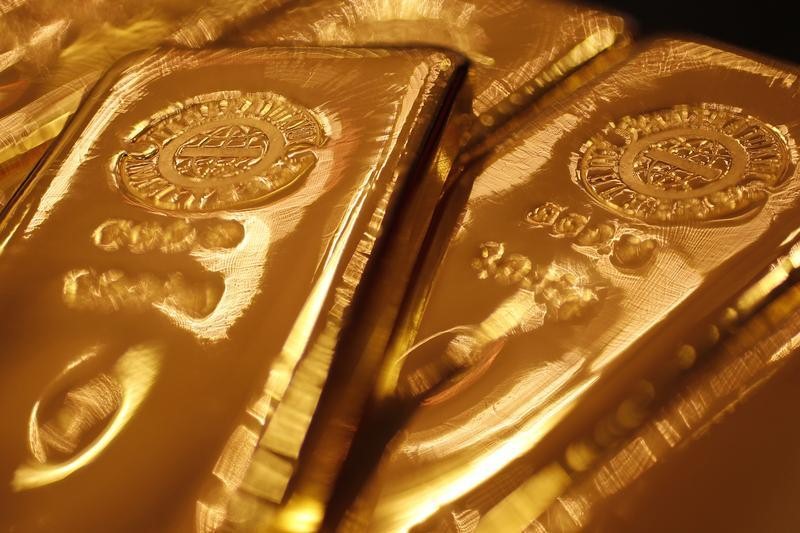Investing.com - Gold prices rallied sharply on Monday, as markets reopened following a series of suicide bombings and shootings in Paris on Friday night that left more than 130 people dead.
The attacks prompted France to launch air strikes in Syria against the Islamic State (ISIS), which claimed responsibility for the attacks.
Later Monday, political leaders were expected to discuss ways to escalate the war against terrorism and deal with the migration crisis at the annual summit of the Group of 20 nations (G20) in Turkey.
The news prompted investors to shun riskier assets, such as stocks and high yielding currencies, and flock to traditional safe haven assets like the U.S. dollar and gold.
Gold for December delivery on the Comex division of the New York Mercantile Exchange ticked up $11.00, or 1.02%, to trade at $1,091.90 a troy ounce during European morning hours. It earlier rose to $1,097.40, the highest since November 6.
Gains were limited as market players prepared for a hike in interest rates by the Federal Reserve next month.
Gold prices have lost nearly 9% since mid-October as investors recalibrated their expectations of U.S. monetary policy in response to hawkish signals from the Fed.
Expectations of higher borrowing rates going forward is considered bearish for gold, as the precious metal struggles to compete with yield-bearing assets when rates are on the rise.
In the week ahead, investors will be turning their attention to Wednesday’s minutes of the Fed’s latest policy meeting for fresh indications on the prospects of a December rate hike.
Market players will also be looking ahead to U.S. data on inflation, building permits and manufacturing activity for further clues on the strength of the economy.
Elsewhere in metals trading, copper prices fell to the lowest level since July 2009 on Monday, as appetite for riskier assets took a hit following the weekend attacks in Paris that left 132 dead.
Prices of the red metal are down 25% since May as fears of a China-led global economic slowdown spooked traders and rattled sentiment.
The Asian nation is the world’s largest copper consumer, accounting for almost 40% of world consumption.
